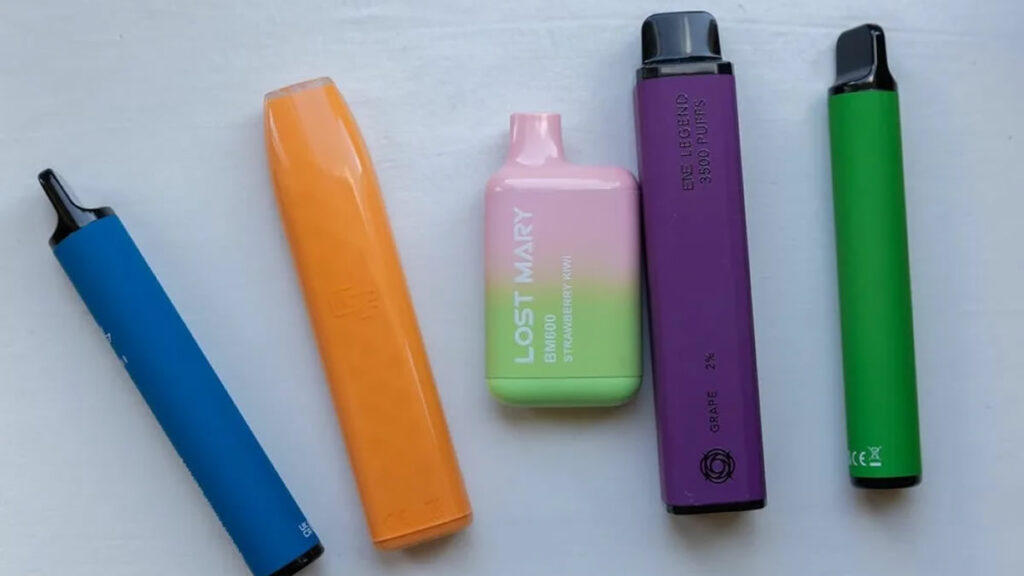The United Kingdom is on the cusp of a legislative revolution in public health. The Tobacco and Vapes Bill, currently under rigorous scrutiny in the House of Lords committee stage, represents one of the most significant interventions in the retail and hospitality sectors in decades. With its dual aim of creating a "smoke-free generation" and tightening the reins on the rapidly evolving vaping market, the Bill promises to reshape the operational landscape for a wide range of businesses—from the local high street convenience store to the luxury hotel lobby shop and duty-paid outlet. As peers examine each clause, retailers must prepare for a future where the sale, display, and marketing of nicotine products are fundamentally transformed. This guide explores the key provisions of the Bill and what they mean for your business strategy.
The "Smoke-Free Generation": Navigating a Sliding Age Limit
At the heart of the legislation lies the pioneering "generational ban." The Bill proposes to make it illegal to sell tobacco products to anyone born on or after January 1, 2009. This is not a static age increase; rather, the legal age for purchasing cigarettes will rise by one year, every year, starting from 2027. The ultimate goal is that children turning 15 or younger this year will never legally be sold tobacco in their lifetime.
Operational Challenges for Retailers
For retailers, this creates a unique and long-term operational challenge. Unlike a simple jump from age 18 to 21, this sliding scale means age verification will become increasingly complex.
- Complex Age Checks: Staff will need to be trained to check for a specific birth year rather than just a static age. This adds a layer of complexity at the point of sale, distinguishing tobacco sales from alcohol or other age-restricted goods where the limit remains fixed.
- System Updates: Point-of-sale (POS) systems will likely require software updates to handle dynamic age restrictions, ensuring compliance and preventing accidental illegal sales.
- Stock Planning: Over time, the pool of eligible legal customers for tobacco products will shrink. Retailers, particularly in the hospitality sector like hotels and resorts, will need to adapt their stock planning as the demographic of guests legally able to purchase cigarettes evolves.
For international hotel operators, this presents a specific hurdle. Guests from countries with traditional fixed age limits may find the UK system confusing. Clear, multilingual signage and well-trained staff will be essential to manage guest expectations and avoid friction at the counter.
Tightening the Screw on Vaping: Bans, Flavors, and Displays
Alongside the generational tobacco ban, the Bill introduces stringent new regulations for the vaping market. While the government acknowledges vaping as a useful cessation tool for adult smokers, it is determined to curb the sharp rise in youth vaping.
The Disposable Vape Ban (Effective June 2025)
A critical context for the Bill is the already-implemented nationwide ban on single-use disposable vapes, which took effect in June 2025. It is now illegal to sell, supply, or possess for sale any single-use vape, including nicotine-free versions. Only rechargeable, refillable devices with replaceable coils remain legal.
- Immediate Action: Retailers and hotels must ensure all disposable stock has been removed from shelves, vending machines, and minibars. Supply chains must be fully pivoted to compliant, reusable devices.
New Powers Over Marketing and Product Standards
The Bill grants ministers sweeping powers to further regulate the vaping market via secondary legislation. Key areas of impact include:
- Flavor Restrictions: The government seeks the power to limit vape flavors, aiming to remove options that blatantly appeal to children (e.g., bubblegum, cotton candy) while preserving choices for adults.
- Packaging and Display: Expect stricter rules on packaging design—potentially moving towards standardized, less attractive formats—and restrictions on how vapes are displayed in stores. They may be moved behind counters or away from products like sweets to reduce visibility to minors.
- Age Restrictions: A codified ban on selling any vaping or nicotine product (including non-nicotine vapes) to under-18s strengthens the existing framework.
Licensing: A New Regime for Compliance
Perhaps the most significant structural shift for retailers is the move towards a dedicated licensing regime for tobacco and vapes, mirroring the strict controls seen in alcohol licensing.
Current proposals suggest a dual-license system requiring both a personal license and a premises license for anyone selling tobacco, herbal smoking products, papers, vapes, or nicotine products. For hotel and resort operators with multiple retail touchpoints (lobby shops, bars, spa retail, kiosks), this could mean:
- Multiple Licenses: Securing separate licenses for each specific outlet within a property.
- Mandatory Conditions: Licenses will likely come with strict conditions regarding age verification standards (potentially including technology-based checks), staff training logs, and adherence to display rules.
- Enhanced Scrutiny: Expect closer engagement with local licensing bodies and Trading Standards, with the threat of license revocation for non-compliance acting as a powerful deterrent against underage sales.
Enforcement and the Future Landscape
Debates in the House of Lords have focused heavily on robust enforcement. Proposals include the use of age-verification technology at tills and for online orders, stepped fixed-penalty systems for offenders, and strategies to tackle retail crime associated with high-value tobacco and vape stock. While stronger enforcement brings the burden of more inspections and potential penalties, a clearer licensing regime could also help tackle the illicit trade that undercuts legitimate businesses.
With over 60 delegated powers included in the Bill, the regulatory landscape will continue to evolve long after the legislation is passed. Secondary legislation will fine-tune details on packaging, flavors, and licensing over time. For retailers and hospitality businesses, this signals a need for agility. Monitoring these changes and integrating them into compliance and risk management strategies will be essential for navigating the UK's new, smoke-free future.

Vape Content Creator | Flavor Reviewer | Lifestyle & Vape Culture Editor
Emily Carter is a vape-focused content creator specializing in flavor reviews, device aesthetics, and lifestyle-oriented vaping content. With hands-on experience testing disposable vapes and pod systems, Emily delivers clear, visually driven insights designed for adult consumers.








